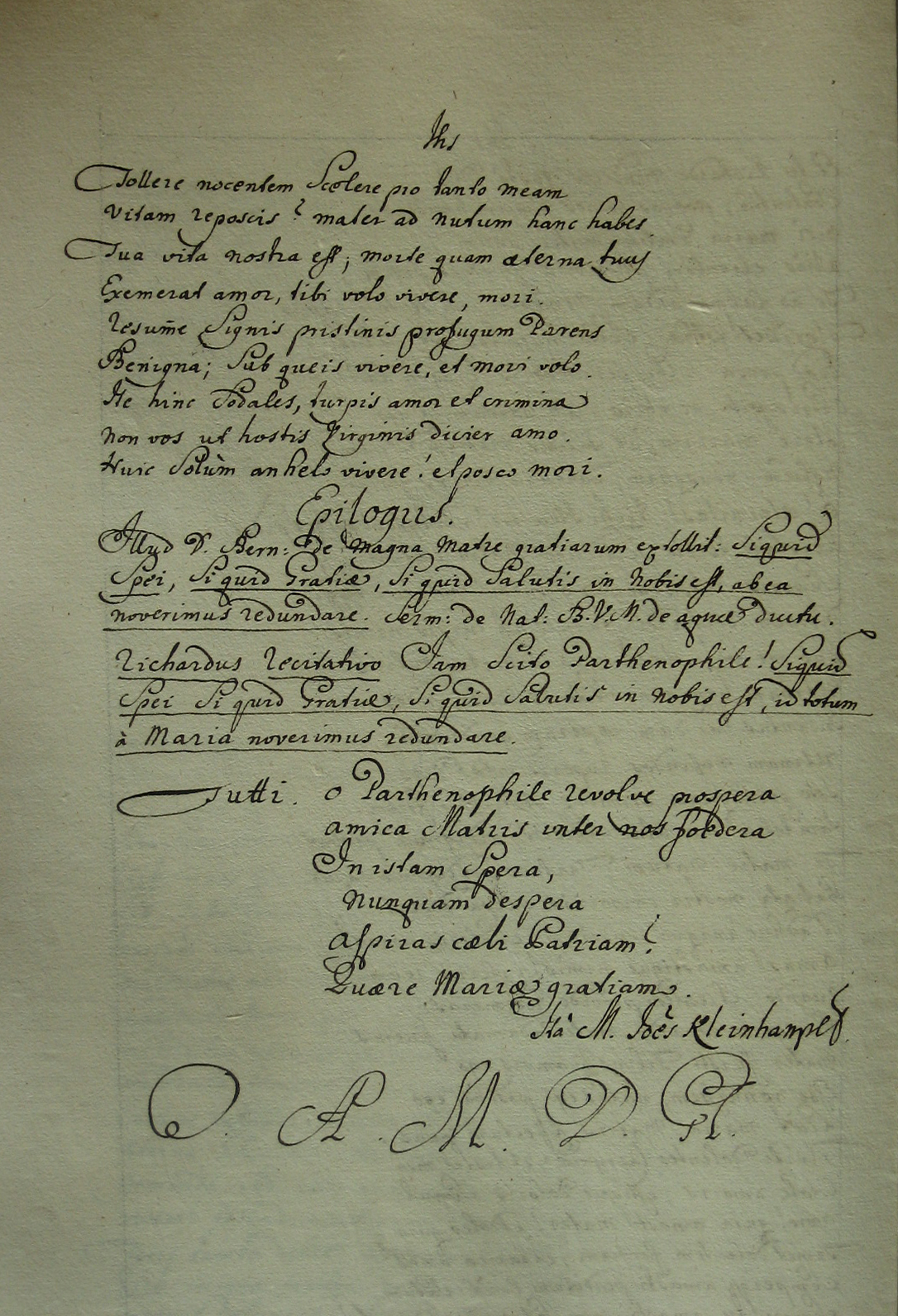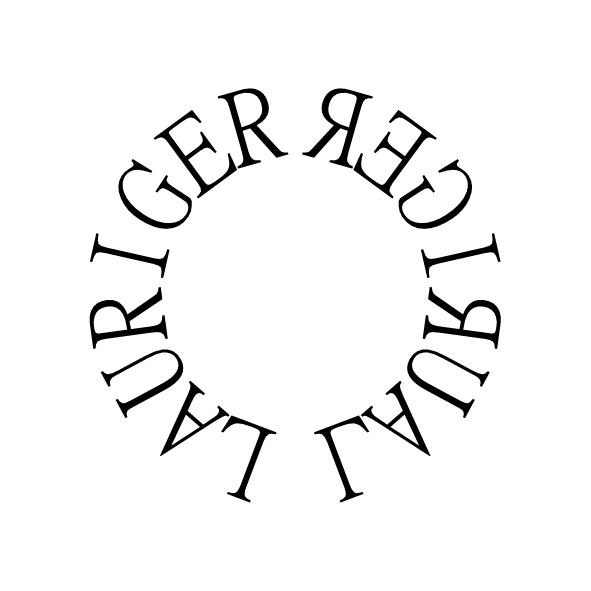Richardus per Magnam Matrem Gratiarum a morte aeterna vindicatus
- First performance: 1735, Prague – Nové Město, the lowest grammar class (rudimantistae)
- Author: Johannes Kleinhampl, SJ (1712–1742)
The play Richard, Who Was Freed from the Eternal Death by the Mother of the Living represents a group of dramas the protagonists of which can be described as young men at a crossroads. Their texts are based on the principle of psychomachia — a battle of good and evil forces fighting over human souls — and include the motive of bivium, a crossroads, where the main protagonist must decide between two ways, be it literally or metaphorically. In this case, Joannes Kleinhampl drew his inspiration from an exemplum from the book Annus hebdomadarum Coelestium by Joannes Nadasi (1613–1679), based on which he wrote a very successful play about a boy named Richard who narrowly escapes the Devil’s intrigues thanks to a prayer to the Virgin Mary. Unlike in the original literature base, in this case Richard is not a young man, but rather a schoolboy who gets tired of strict discipline and runs away from his teacher Theorgus. The Devil uses this opportunity and tries to lead Richard astray using a young boy called Libertus. Richard is saved from an eternal reprobation only thanks to the fact that despite his depravity, he retained a respect for the Virgin Mary who intercedes with Christ on his behalf. More info in Czech
Text
Joannes Kleinhampl: Richardus per Matrem viventium a morte aeterna vindicatus,
hodie pro theatro propositus ab Illustrissima, Perillustri, Praenobili ac Ingenua rudimentorum schola in academico gymnasio S. J. Pragae ad S. Ignatium 1735
National Archives, fond Stará manipulace, sign. J 20/17/18, kart. 998, fol. 199r–209v
Synopsis
Joannes Kleinhampl: Richardus per Magnam Matrem Gratiarum a morte aeterna vindicatus,
hodie pro theatro propositus ab Illustrissima, Perillustri, Praenobili ac Ingenua
rudimentorum juventute in academico Soc. Jesu gymnasio Pragae ad S. Ignatium an. 1735,
mense…, die… / Richardus skrze velkou Máteř Milosti Marii od věčné smrti vysvobozený,
dnešního dne na veřejné dívadlo uvedený od vysoce urozené, urozené a šlechetné mládeže
první školy Tovaryšstva Pána Ježíše v Novém Městě pražském léta 1735, měsíce ... dne ...
Národní
archiv ČR, fond Stará manipulace, sign. J 20/17/18, kart. 998, fol. 198r–v.
Magdaléna Jacková: Nejmírnější Pallas. Hry určené gramatikálním třídám jezuitských gymnázií. Praha: Academia, 2016. (= Theatrum Neolatinum. Latinské divadlo v českých zemích, 2.), p. 59–122.
Bibliography
Magdaléna Jacková: Jesuit school plays from provincia bohemia SJ written for grammar classes. In A. Steiner-Weber– F. Römer (eds.): Acta conventus Neo-latini Vindobonensis, Leiden, Brill 2018, p. 369–378. DOI: https://doi.org/10.1163/9789004361553_029


